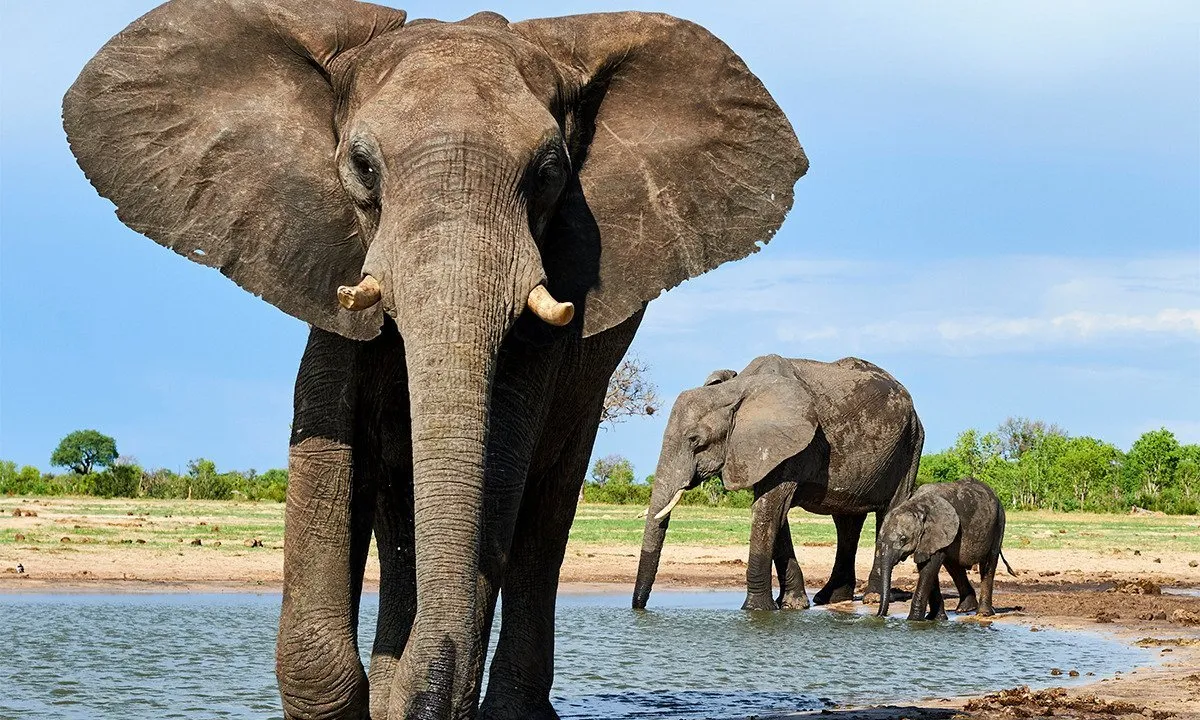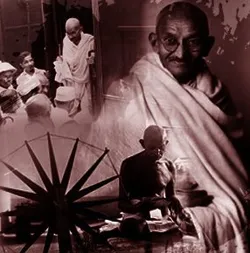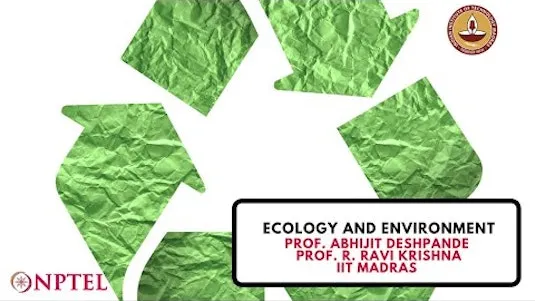
Ecology: Ecosystem Dynamics and Conservation 
This course introduces learners to ecology and ecosystem dynamics, using a systems thinking lens and a case study of Mozambique's Gorongosa National Park. Learners will gain an understanding of how scientists study ecosystems, and explore the complex factors that inform conservation efforts. Upon completion, learners will be able to analyze real-world conservation questions and consider the role of humans in ecosystem recovery. ▼
ADVERTISEMENT
Course Feature
![]() Cost:
Cost:
Free
![]() Provider:
Provider:
Coursera
![]() Certificate:
Certificate:
Paid Certification
![]() Language:
Language:
English
![]() Start Date:
Start Date:
24th Jul, 2023
Course Overview
❗The content presented here is sourced directly from Coursera platform. For comprehensive course details, including enrollment information, simply click on the 'Go to class' link on our website.
Updated in [March 06th, 2023]
This course, Ecology: Ecosystem Dynamics and Conservation, provides an introduction to ecology and ecosystem dynamics from a systems thinking perspective. Learners will explore the case study of Mozambique's Gorongosa National Park, and gain an understanding of how scientists study ecosystems. Additionally, learners will investigate the various factors that inform management efforts. Upon completion of the course, learners will be able to analyze real-world conservation questions, such as whether an ecosystem can recover from anthropogenic disruption and the role humans can and should play in that recovery.
[Applications]
Upon completion of this course, learners can apply their knowledge of ecology and ecosystem dynamics to their own local environment. They can use the systems thinking lens to identify the complex array of factors that influence their local environment and develop strategies to manage and conserve it. Learners can also use the case study of Gorongosa National Park to inform their own conservation efforts, and to gain a better understanding of the role of humans in ecosystem recovery.
[Career Paths]
1. Conservation Biologist: Conservation biologists work to protect and restore natural ecosystems and the species that inhabit them. They use their knowledge of ecology and conservation to develop strategies for preserving biodiversity and managing human activities that impact the environment. Conservation biologists are increasingly in demand as the effects of climate change become more pronounced and the need for sustainable management of natural resources grows.
2. Environmental Educator: Environmental educators work to raise awareness of environmental issues and promote sustainable practices. They use a variety of methods, such as lectures, workshops, and field trips, to educate people about the importance of conservation and the need to protect natural resources. As environmental issues become more pressing, the demand for environmental educators is expected to grow.
3. Ecological Restoration Specialist: Ecological restoration specialists work to restore degraded ecosystems to their natural state. They use their knowledge of ecology and conservation to develop plans for restoring habitats and reintroducing species. As the effects of climate change become more pronounced, the need for ecological restoration specialists is expected to increase.
4. Environmental Policy Analyst: Environmental policy analysts work to develop policies and regulations that protect the environment and promote sustainable development. They use their knowledge of ecology and conservation to inform policy decisions and advise governments and organizations on how to best manage natural resources. As the need for sustainable management of natural resources grows, the demand for environmental policy analysts is expected to increase.
[Education Paths]
1. Bachelor of Science in Ecology: This degree program provides students with a comprehensive understanding of the principles of ecology, including the study of the interactions between organisms and their environment. Students will learn about the structure and function of ecosystems, the effects of human activities on the environment, and the conservation of natural resources. This degree program is ideal for those interested in pursuing a career in environmental science, conservation, or natural resource management.
2. Master of Science in Conservation Biology: This degree program focuses on the study of the conservation of biodiversity and the management of natural resources. Students will learn about the principles of conservation biology, the effects of human activities on the environment, and the strategies used to protect and restore ecosystems. This degree program is ideal for those interested in pursuing a career in conservation, environmental management, or natural resource management.
3. Doctor of Philosophy in Ecology: This degree program provides students with an in-depth understanding of the principles of ecology, including the study of the interactions between organisms and their environment. Students will learn about the structure and function of ecosystems, the effects of human activities on the environment, and the conservation of natural resources. This degree program is ideal for those interested in pursuing a career in research, teaching, or policy-making.
4. Master of Science in Environmental Science: This degree program provides students with a comprehensive understanding of the principles of environmental science, including the study of the interactions between humans and their environment. Students will learn about the effects of human activities on the environment, the conservation of natural resources, and the strategies used to protect and restore ecosystems. This degree program is ideal for those interested in pursuing a career in environmental management, conservation, or natural resource management.
Pros & Cons

In depth exploration of ecology and conservation

Accessible level with challenging and new information

Structured and easy to follow

Understand importance of biodiversity

Holistic view of global dynamics

Difficult transpositions and logic

Requires prior knowledge of topic

Time consuming

Maths incorporated

Complex problematics
Course Provider

Provider Coursera's Stats at AZClass
Discussion and Reviews
0.0 (Based on 0 reviews)
Explore Similar Online Courses

Managing My Investments

Yoga for everyone

Python for Informatics: Exploring Information

Social Network Analysis

Introduction to Systematic Review and Meta-Analysis

The Analytics Edge

DCO042 - Python For Informatics

Causal Diagrams: Draw Your Assumptions Before Your Conclusions

Whole genome sequencing of bacterial genomes - tools and applications

South Asian Religions & Ecology

MGPE-014: Gandhi: Ecology and Sustainable Development

Ecology And Environment
 Related Categories
Related Categories
 Popular Providers
Popular Providers
 Popular Searches
Popular Searches
Quiz
 Submitted Sucessfully
Submitted Sucessfully
1. What is the main focus of this course?
2. What is the goal of the course?
3. What is the primary lens used in this course?


Start your review of Ecology: Ecosystem Dynamics and Conservation